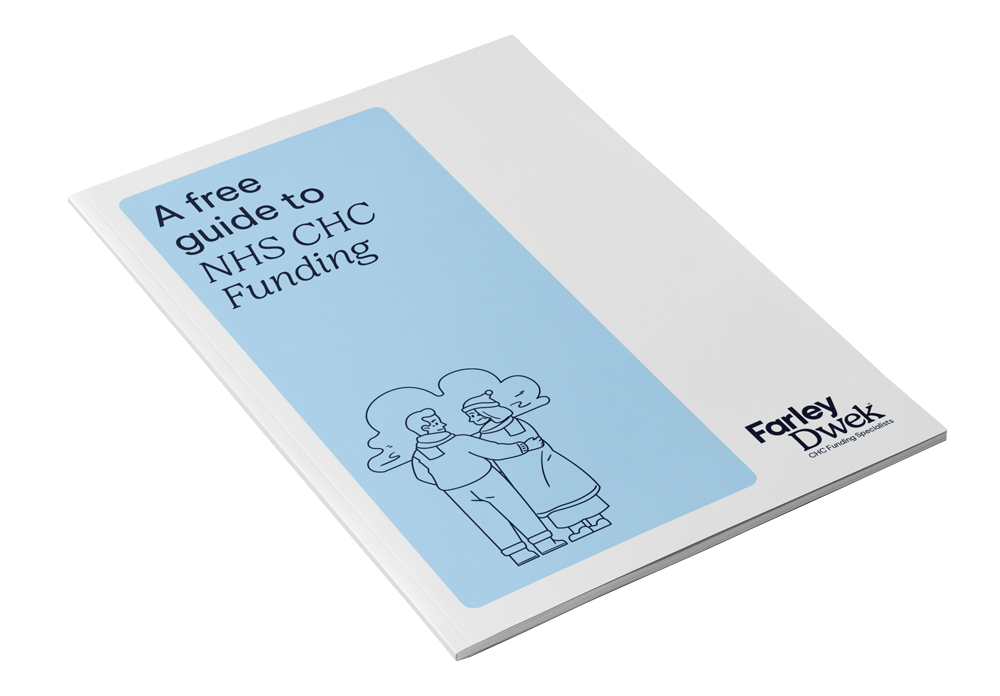Top-Up Fees
Reclaim unlawful top-ups
If you have been “topping-up” a Continuing Healthcare package, you may be entitled to repayment.
CHC funding must cover the full cost of the care package, yet families are often asked to pay additional fees on top. Farley Dwek Solicitors act for families seeking repayment of “top-up” fees, unlawfully charged by care providers.
NHS Continuing Healthcare is Fully Funded
When an individual has been found eligible for CHC funding, the NHS must meet the cost of all their health and social care needs, including accommodation. A care home – or agency – is not lawfully permitted to charge any additional fees.
However, as NHS budgets become ever more stretched, ICBs will often limit the amount they pay for a package of care, leaving the care provider with a shortfall which they then try to pass on to the family. This is not permitted.
The National Framework for NHS Continuing Healthcare and NHS-funded Nursing Care states:
“NHS care is free at the point of delivery. The funding provided by the ICBs in NHS Continuing Healthcare packages should be sufficient to meet the needs identified in the care plan. Therefore it is not permissible for individuals to be asked to make any payments towards meeting their assessed needs.”
If the NHS is not paying the care provider enough to cover its costs, that is a matter for the care provider, not the person needing care.
If your relative has been charged to top-up a CHC package, we may be able to help reclaim unlawfully paid fees.

FAQs
Top-up fees are additional charges paid on top of the standard cost of care, which usually arise when a family chooses a more expensive care home or room than the NHS Integrated Care Board has agreed to fund. In some cases, however, families are wrongly pressured into paying top-up fees even when the NHS should have covered all costs under Continuing Healthcare (CHC) funding.
The amount varies depending on the care home and the level of services required. Weekly care home fees in the UK currently range between £800 and £2,500+ depending on whether the care is residential, nursing or specialist care. Top-up fees can add hundreds of pounds more per week, which can place a significant financial burden on families.
Not necessarily. If your relative has been assessed as being eligible for NHS Continuing Healthcare, their care should be fully funded, without the need for top-up fees.
Top-up fees are not unlawful if applied correctly, but they must follow strict guidance. Families should never be asked to pay top-up fees to make up a shortfall for underfunding, as CHC should cover the full cost of their assessed healthcare needs. Sadly, unlawful charges are common (and often disguised), and many families have to later reclaim fees that should never have been paid in the first place.
If CHC funding is granted, all care and accommodation costs should also be fully covered. However, items of personal want or needs – often referred to as ‘hotel style luxuries’ – such as a larger or better quality room, or ‘spa’ type treatments, have to be paid for and can lawfully be charged.
If you are being unlawfully charged, e.g. where CHC funding should apply, you can and should challenge the fees. However, if the fees are legitimate (eg choosing a more luxurious room), refusing to pay the top-up fees could mean that your relative is asked to move to a lower-cost alternative. So it’s crucial to understand your rights and seek advice before agreeing to or refusing any payments.



